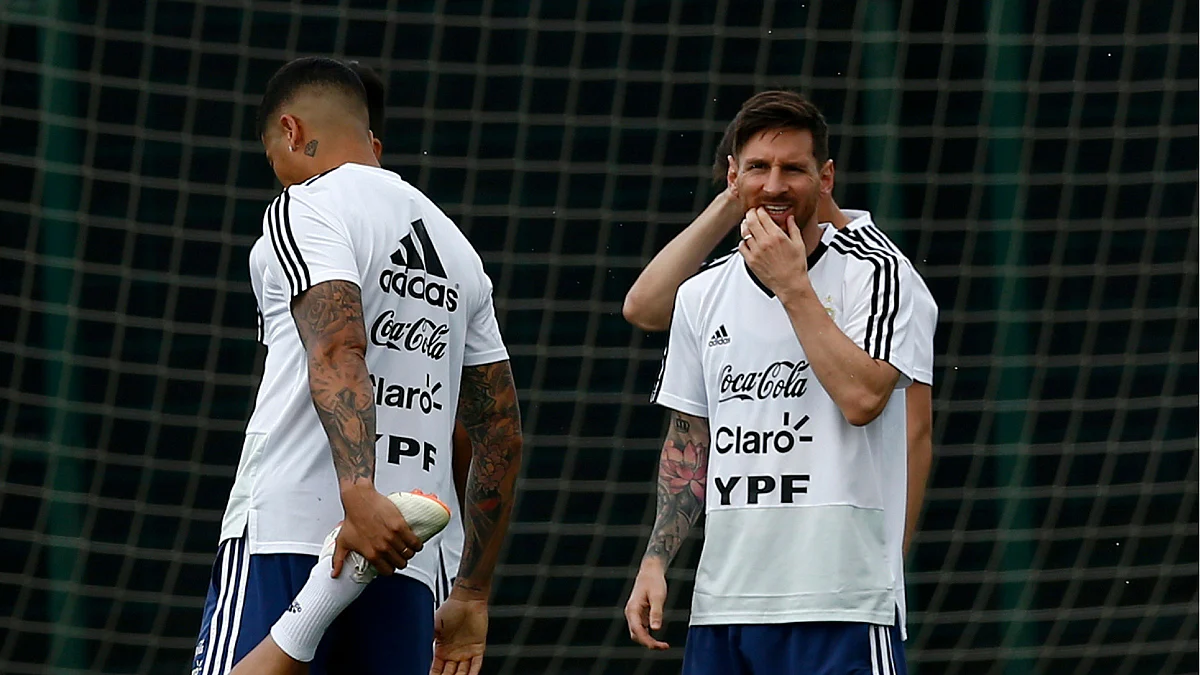FIFA World Cup 2018: Israel in Uproar Over Argentina Friendly Snub
Argentina has cancelled last friendly match before the World Cup, with Israel, which has the country in an uproar

advertisement
The sports-crazy nation of Israel was in uproar over Argentina's abrupt cancellation of a World Cup warmup match scheduled on evening of Saturday, 9 June, following pro-Palestinian protests, with some of the country's leaders accusing Lionel Messi and his teammates of caving to terrorism.
Israel was eagerly awaiting the sold-out international friendly scheduled for Saturday night at Jerusalem's Teddy Kollek Stadium and the arrival of some of the world's best players. Argentina is one of the most popular national teams among Israelis and fans had been scrambling to get a chance to see Messi in person.
But after a fierce Palestinian campaign, which included images of Argentina's white and sky-blue striped jersey stained with red paint resembling blood and threats to burn Messi posters, Argentina's football federation announced it was skipping the event.
Prime Minister Benjamin Netanyahu called Argentine President Mauricio Macri and urged him to intervene, to no avail.
Opposition figures, however, accused Israel's headline-seeking sports minister Miri Regev of bringing on the politicisation of the sporting event by insisting on moving the game from Haifa to contested Jerusalem and by trying to orchestrate a politicised photo-op with Lionel Messi.
Opposition leader Yitzhak Herzog called the snub a "spectacular own goal" by Regev that delivered victory to boycotters of the Jewish State. Labor Party leader Avi Gabbay called for a police investigation into Regev's "corrupt conduct".
Regev countered that terrorist groups had made threats against Argentina's players and their families, sending them images of dead children. She accused members of the Israeli parliament, the Knesset, of backing advocates who call for boycott as part of a plan of Palestinian sympathy.
Israel has largely fended off the boycott campaign, with only a small number of artists and organisations shunning the country. Argentina's snubbing would appear to be the boycott movement's greatest achievement thus far.
The Palestinians celebrated the cancellation as a major triumph.
The head of the Palestinian football association, Jibril Rajoub, had called on Arab soccer fans to burn Messi posters if he participated. He has long tried to get soccer's world governing body, FIFA, and the International Olympic Committee to impose sanctions against Israel.
Israeli organisers said an offer had been floated to have the game played in Barcelona instead, but it was highly unlikely.
Argentina opens its Group D campaign in Russia against Iceland on 16 June. It then plays Croatia on 21 June and Nigeria on 26 June. It is unclear whether Argentina will play another warmup, or if it will arrive to Moscow ahead of schedule.
(With inputs from AP)